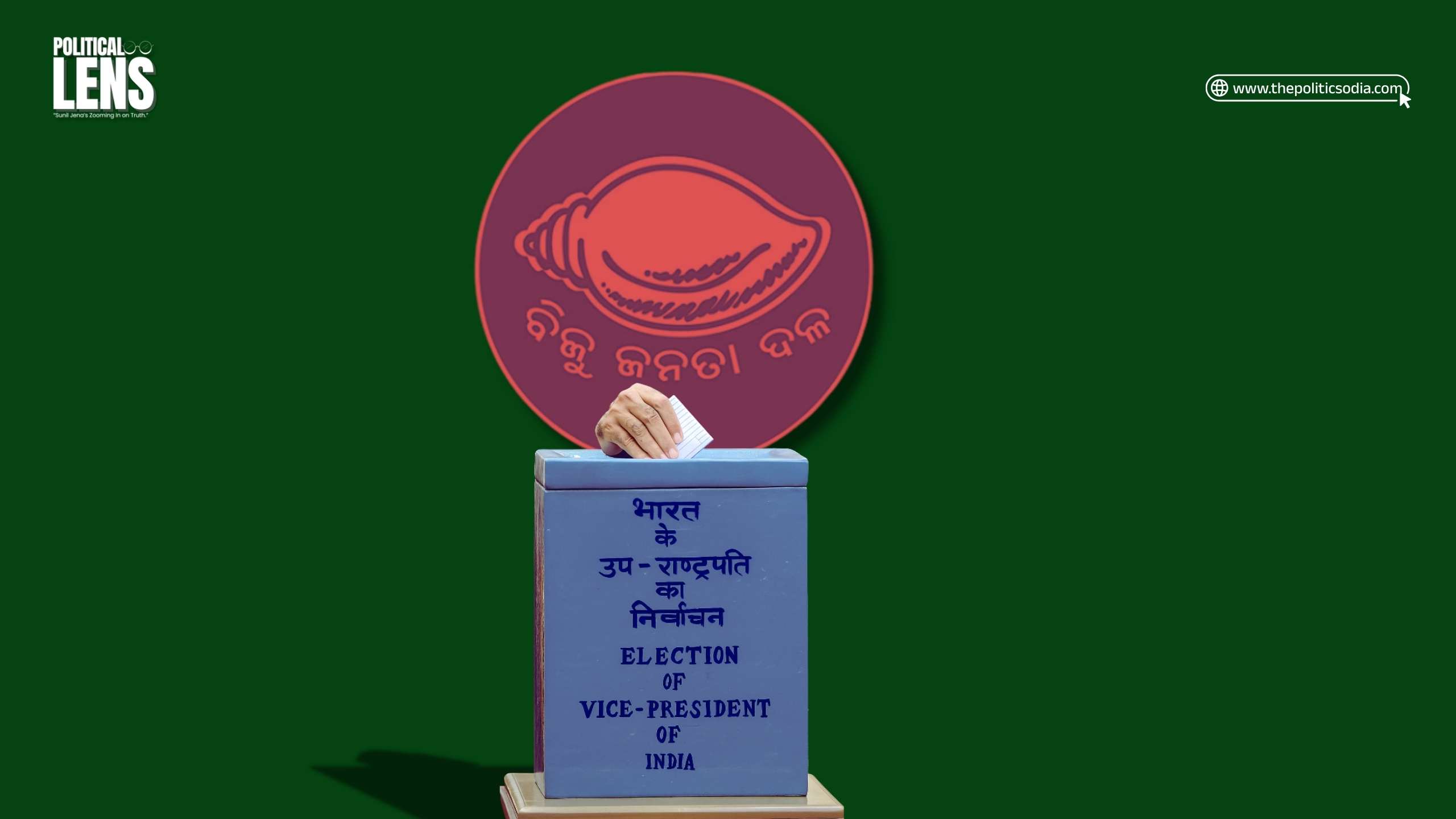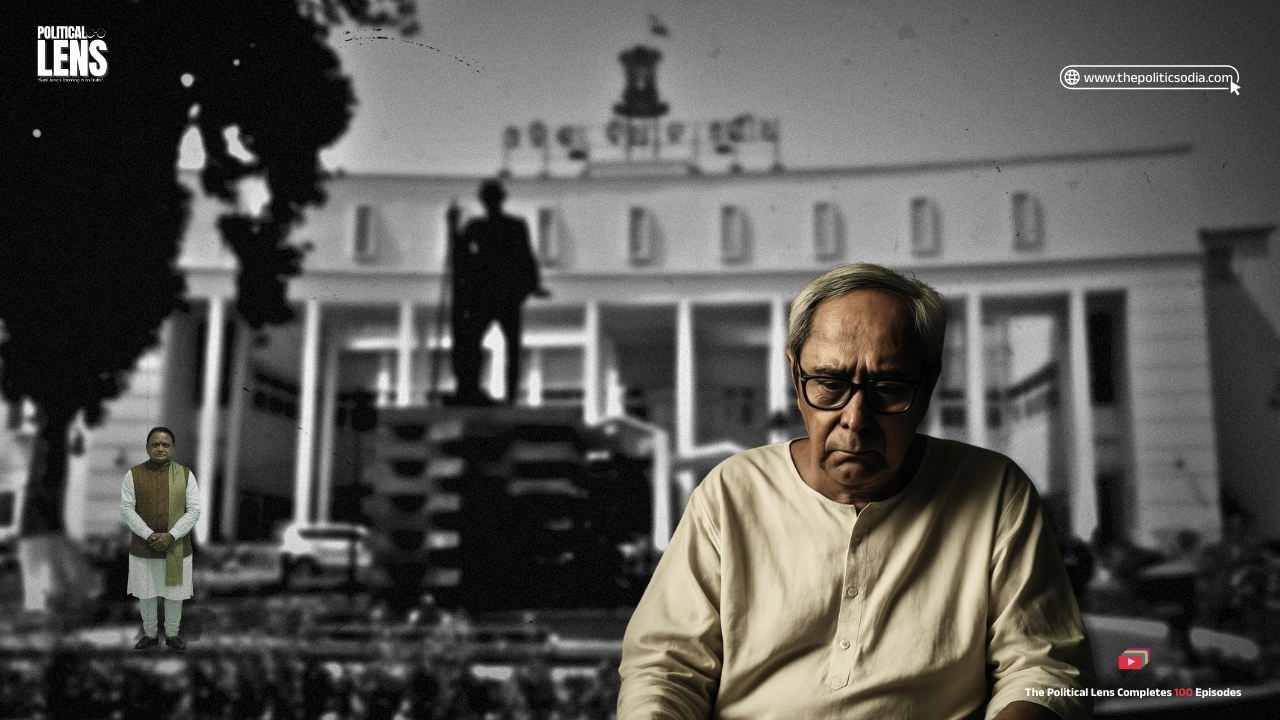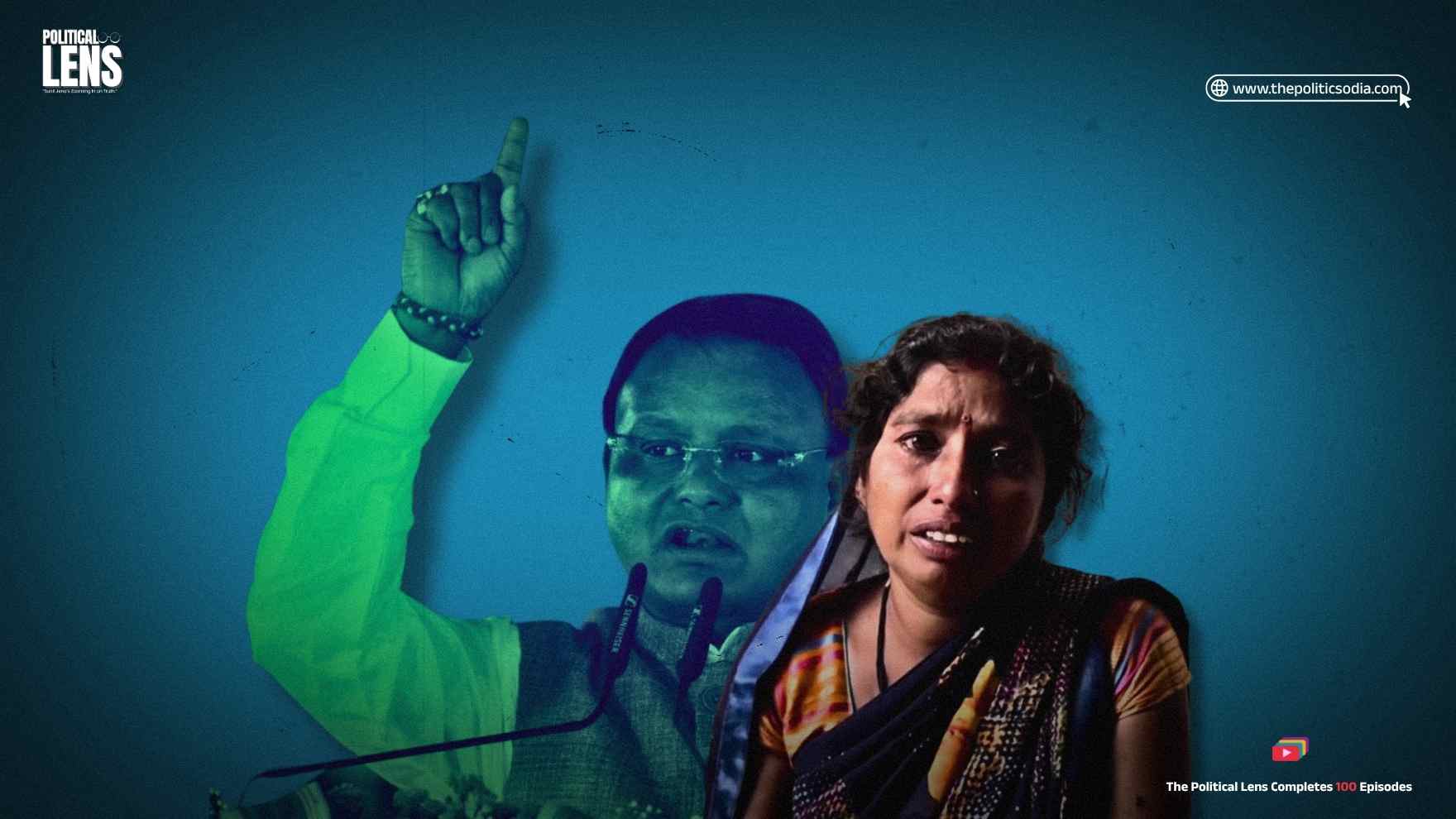By Sunil Jena, Editor-in-Chief | The Politics Odia
The recent decision of the Biju Janata Dal (BJD) not to vote in the Vice President election has triggered a fresh debate in Odisha’s political circles. Many party leaders and workers are left confused, and some even feel betrayed, as they question whether this was a well-calculated strategy or a dangerous political gamble by the Naveen–Pandian leadership.
Historically, BJD has openly supported NDA candidates in both Presidential and Vice Presidential elections. In the past, the party did not hesitate to extend its backing to the BJP-led NDA, often playing the role of a silent ally in Delhi politics. But this time, the situation is very different.
The BJP has already replaced BJD in power in Odisha, and BJD now sits in the Opposition for the first time in 24 years. At such a crucial juncture, the party leadership decided to adopt a policy of “neutrality” by abstaining from voting. On the surface, this may appear as a balanced decision. But in reality, it has created an impression that BJD is indirectly supporting the NDA yet again.
This decision has exposed two key political risks:
- Loss of Political Relevance in Delhi
By not casting its vote, BJD has diminished its bargaining power in national politics. When a regional party chooses to stay silent on such an important election, it sends a message of weakness rather than neutrality. - Alienation of Party Cadres
Thousands of BJD workers and leaders feel they were kept in the dark. Once again, Naveen Patnaik and VK Pandian took a unilateral decision without transparent consultation. This has deepened the sense of dissatisfaction among party loyalists, who are already struggling with the shock of losing power in Odisha.
It is also important to note that only a few months ago, BJD faced heavy criticism in Parliament over its position on the Waqf Bill, leading to public disagreements and confusion. Against that backdrop, the latest decision looks like another miscalculation that could further weaken BJD’s credibility as a strong opposition voice.
While the leadership defends its stance as part of a “policy of equidistance,” the ground reality is that it reflects a lack of clarity in political positioning. For the BJP, this abstention comes as a silent advantage. For BJD, however, it risks both losing relevance at the national stage and eroding trust within its own cadre base.
The question now is whether BJD can afford to continue this strategy of silence and ambiguity. In the long run, such moves may not only reduce its influence in Delhi but also weaken its image as a reliable opposition in Odisha.




